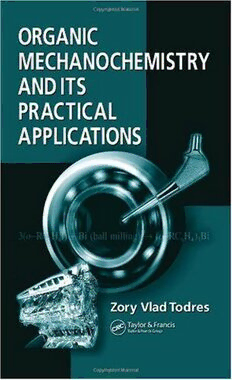
Organic Mechanochemistry and Its Practical Applications PDF
171 Pages·2006·2.948 MB·English
Most books are stored in the elastic cloud where traffic is expensive. For this reason, we have a limit on daily download.
Preview Organic Mechanochemistry and Its Practical Applications
Description:
Organic Mechanochemistry and Its Practical Applications gathers physical and organic chemistry-based molecular principles, evolving interpretations of scientific data, and real world applications to demonstrate the synthetic advantages of mechanically initiated organic reactions. This book considers transformations of organic substances upon mechanical actions and explains how mechanical energy is transformed into chemical driving force. The author, a renowned expert in physical and organic chemistry, carefully examines the concurrent chemical and physical processes—particularly polymerization and dynamic shearing—that involve organic substances and inorganic surfaces during lubrication. Dr. Todres discusses the various factors that affect boundary lubrication, such as material properties, chemical reactivity, pressure, and temperature. The book describes conformational transformations and structural phase transitions of organic molecules and working materials that take place under mechanical forces, such as drilling, grinding, friction, and shearing, and shock-waves. Other key topics include mechanochromism, tribopolymerization, mechanical activation of organic reactions, and the peculiarities of catalytic effects in organic mechanochemistry. Throughout the text, the author highlights novel technical applications of mechanochemical phenomena in a variety of fields, including lubrication, biomedical engineering, pharmaceutical drug formulation, environmental protection, and practical economy. Organic Mechanochemistry and Its Practical Applications reveals how mechanochemistry was inspired by principles in various disciplines to create innovative approaches for current challenges in these fields.
See more
The list of books you might like
Most books are stored in the elastic cloud where traffic is expensive. For this reason, we have a limit on daily download.
